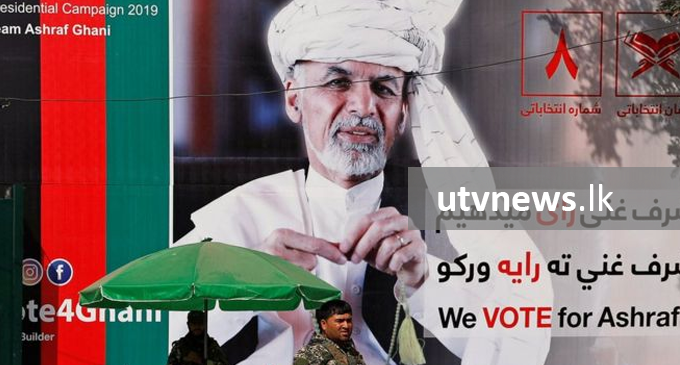(UTV|COLOMBO) – The United States would withdraw 5,400 troops from Afghanistan within 20 weeks as part of a deal “in principle” with Taliban militants, Washington’s top negotiator has said.
Zalmay Khalilzad revealed details of the long-awaited deal for the first time in a TV interview after briefing Afghan leaders on the agreement.
But he said final approval still rested with US President Donald Trump.
A huge blast rocked Kabul as the interview aired.
The Taliban said it was behind the attack, which killed at least five civilians and wounded dozens more. It said foreign forces were the target.
The bomb targeted a residential compound housing foreigners and the Taliban said gunmen were also involved.
The attack highlights fears that US negotiations with the Taliban won’t end the daily violence in Afghanistan and its terrible toll on civilians.
The militants now control more territory than at any time since the 2001 US invasion and have so far refused to talk to the Afghan government, whom they deride as American puppets.
The deal outlined by Mr Khalilzad in an interview with Tolo News is the product of nine rounds of peace talks that have been held in the Gulf state of Qatar.
In exchange for the US troop withdrawal, the Taliban would ensure that Afghanistan would never again be used as a base for militant groups seeking to attack the US and its allies.
“We have agreed that if the conditions proceed according to the agreement, we will leave within 135 days five bases in which we are present now,” Mr Khalilzad said.
The US currently has about 14,000 troops in the country.
A Taliban spokesman confirmed in a text message to the BBC that the details of the troop withdrawal as outlined by Mr Khalilzad were correct.
A pullout of the remaining forces would depend on conditions, including the start of peace talks between the Afghan government and the Taliban as well as a ceasefire, reports the BBC’s Lyse Doucet from Kabul.
Afghan President Ashraf Ghani will study the deal before giving any opinion, his spokesman Sediq Seddiqqi said earlier on Monday. He said the government still needed proof the Taliban were committed to peace.
Many in Afghanistan fear that a US-Taliban deal could see hard-won rights and freedoms eroded. The militants enforced strict religious laws and treated women brutally under their rule from 1996 to 2001.
What’s the background to the Afghan war?
It began when the US launched air strikes one month following the 11 September 2001 attacks and after the Taliban had refused to hand over the man behind them, Osama Bin Laden.
The US was joined by an international coalition and the Taliban were quickly removed from power. However, they turned into an insurgent force and continued deadly attacks, destabilising subsequent Afghan governments.
The international coalition ended its combat mission in 2014, staying only to train Afghan forces. But the US continued its own, scaled-back combat operation, including air strikes.
The Taliban has however continued to gain momentum and last year the BBC found they were active across 70% of Afghanistan.
Nearly 3,500 members of the international coalition forces have died in Afghanistan since the 2001 invasion, more than 2,300 of them American.
The figures for Afghan civilians, militants and government forces are more difficult to quantify. In a February 2019 report, the UN said that more than 32,000 civilians had died. The Watson Institute at Brown University says 58,000 security personnel and 42,000 opposition combatants have been killed. (Input with BBC)
[alert color=”faebcc” icon=”fa-commenting”]Keeping up to date with breaking news while you are on the move is now simple with UTV Alerts [textmarker color=”8a6d3b”]Type REG UTV and send to 77000[/textmarker] on your Dialog, Airtel, or Hutch mobile connection[/alert]

